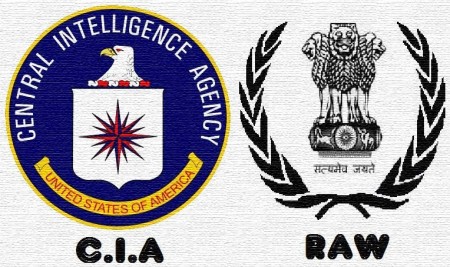Pakistan-US Compromise: Biggest Losers Are Defense, CIA, India, NDN
Paknationalists
The compromise agreement between Pakistan and the United States that allowed the resumption of NATO supplies through Pakistan to Afghanistan is verbal and unwritten.
This serves the interests of both Islamabad and Washington.
The Pak-US stalemate was on the surface focused on a single incident: the deliberate American military attack that killed 24 Pakistani soldiers on November 26, commonly known as 26/11.

But in reality, the Pakistanis used the incident to launch a complete review from the Pakistani side of Pakistan’s cooperation in America’s Afghan war project. The implicit message was this: Islamabad could end the review by exiting America’s war effort, leaving thousands of US troops in Afghanistan in the lurch. To emphasize the point, the Pakistani government and military ceded control over the review to the parliament. Knowing the popular mood in Pakistan, the message was received in Washington loud and clear: parliament will act according to popular Pakistani demands. Unless, of course, Washington met Pakistani demands for an overhaul in termsIslamabad has done a huge favor to theObama administration by dropping the demand to jack up transit fees on US and NATO containers and allow lethal weapons to pass without screening. American savings due to this Pakistani move during these hard times would be staggering. It is not clear how Pakistan will address the problem of NATO containers ‘leaking’ weapons and other supplies to anti-Pakistan terrorists in Balochistan and on Afghan border. But Islamabad must have received American assurances about something lucrative for them to drop the screening requirement.
Question is: what did Pakistan get in exchange for dropping these two crucial demands: transit fees and container screening?
The Pak-US talks since November were not just about container traffic. They covered a number of critical issues, including the overall role of CIA in the region, the Haqqani network, American posturing on pro-Kashmir groups like LeT to appease India, and India’s role in Afghanistan.
Washington has always wanted Pakistanis to drop the demand to put CIA’s regional brief on paper. That could create legal troubles for the Obama administration, since many of CIA’s actions violate international law and result in killing Afghan and Pakistani civilians in considerable numbers.
So, it is reasonable to say there are a number of things that Pakistanis and Americans appear to have agreed on verbally without putting anything on paper.
Reports are circulating that Washington has matched Islamabad’s concessions with some of its own that can’t be made public now due to domestic American and foreign policy considerations.
Let’s look at who loses what in this compromise.
- Russia and Central Asia. Some analysts suggest that Russia and a couple other Central Asian states are charging the United States and NATO up to $700 per container. If this figure is correct, the total cost per container probably exceeds $1,000 through the alternate route known as Northern Distribution Network. The Pakistani decision to stay on $250 fee per container restores Pakistan’s position as the cheapest route for US and NATO traffic into Afghanistan.
- CIA and Department of Defense. Somewhere after 2002, the Central Intelligence Agency and theDepartment of Defense hijacked Washington’s Pakistan policy. One manifestation of this quiet hijack was the increasing use of US diplomatic passports to send hundreds of CIA agents into Pakistan. This action endangered the lives of real American diplomats and nearly destroyed American diplomacy in Pakistan. But in recent weeks, it appears that other power centers in Washington DC realized that CIA and DoD’s policy could lead to a conflict with Pakistan and ruin Obama’s Afghan withdrawal plans in an election year. The CIA and DoD have tried on numerous occasions to scuttle Pak-US diplomacy. The new understanding between Pakistan and United States applies some brakes on CIA and DoD’s free hand on Pakistan.
- India. One of the perennial sore points for New Delhi is Pakistan’s strategic location, which makes Pakistan crucial to US diplomacy in three vital regions: West Asia, Central Asia and South Asia. This has been amply proven in the post-Salala diplomacy. Despite all the US posturing, Washington couldn’t get itself to abandon the Pakistani option. This is why New Delhi has used other routes to influence American thinking on Pakistan. The most notable of these routes is to use Indian migrants in the United States and hire American lobbyists to shape an anti-Pakistan narrative. Indians are credited with introducing several concepts to American think tanks, like exploiting Pakistani languages and religious sects to weaken and blackmail the country. This transfer of ‘Indian expertise’ on Pakistan to United States was facilitated by elements in CIA and Pentagon that explored possibilities of intervention in Pakistan during the past decade. The Indian theories on Pakistan, many of which are flawed, are responsible in part for the poor American performance in Afghanistan and for hiccups with Pakistan. Now the worry in New Delhi is this: do the new unwritten Pakistani-American understandings hurt India in any way? India will be especially concerned about any possible American commitments to Pakistan regarding India’s meddling in Afghanistan. Also, India is concerned that the Pakistani-American compromise might affect Washington’s support to pursue leads in the Mumbai attack probe designed to implicate Pakistan. The Indians realize their leads are weak and they need strong American backing to implicate Pakistan. Implicating Pakistan is important for New Delhi because it can help it put Pakistan on the back foot in Kashmir, where the population is up in arms against Indian occupation.
of engagement.

Comments